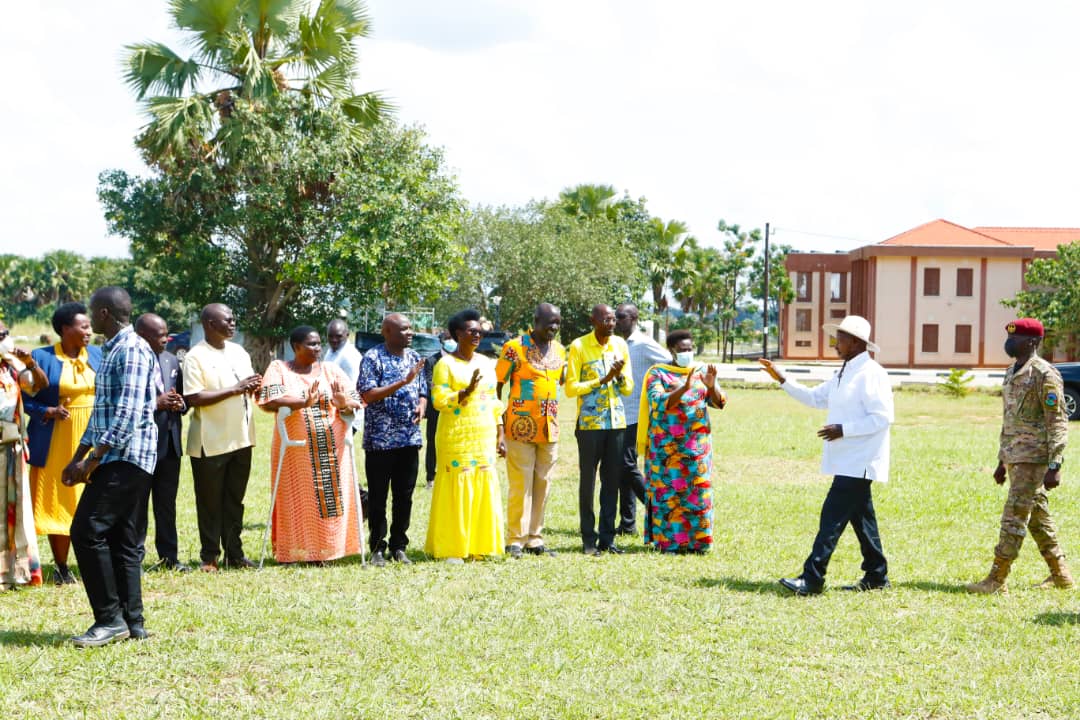
By Nathan Eyagu
Soroti – President Yoweri Kaguta Museveni has unveiled a bold new livestock rehabilitation initiative that will see every household in the Teso sub-region receive five cows, signaling a shift from compensation to economic restoration.
Speaking during a leadership meeting at Soroti University, the President emphasized that the initiative aims to rebuild livelihoods devastated by decades of insurgency and cattle rustling.
“This is not compensation. It is rehabilitation,” President Museveni said. “We want to restore the wealth that was taken from you and build sustainable prosperity.”
He tasked Vice President Jessica Alupo, who hails from the region, with leading a technical and political team to design a practical, transparent implementation strategy within 30 days.
Shortly after the meeting, President Museveni posted on his official X (formerly Twitter) account, reinforcing the government’s commitment to a fair and inclusive solution for Teso:
“I met with the leaders of Teso sub-region at Soroti University to assess the cattle compensation program and discuss its speedy implementation. This meeting addresses long-standing issues like politics of identity and cattle rustling since 1962.”
“I was pleased to learn that 28,000 people have received part of the money allocated. My recommendation is equal distribution among households, benefiting 169,000 families.”
“Finally, I proposed forming a committee of elders and youth to help unify the Teso people. We need a practical system for equitable distribution of five cows per household.”
The President’s announcement comes after months of growing pressure from the opposition-led “No Cow, No Vote” campaign, which demanded that the government compensate Teso communities for cattle losses stretching back to the 1980s and earlier.
The campaign was championed by opposition MPs including Jonathan Ebwalu and Joan Alobo, and saw the arrest of FDC Party President Patrick Amuriat during a protest in Soroti. It gained traction ahead of the 2026 elections, as local leaders accused the government of failing to fulfill earlier promises.
Justice Minister Norbert Mao had earlier disclosed that over UGX 900 billion was needed to fully settle verified compensation claims. However, progress was slow, and many communities remained unreached.
With the shift from compensation to household rehabilitation, the President appears to be resetting the narrative—seeking a practical, inclusive, and sustainable solution.
Vice President Jessica Alupo welcomed the directive and promised immediate formation of a working committee.
“We now have a clear direction. We will ensure this program is implemented transparently and reaches every household in Teso,” she said.
Hon. Acham Teddy, a respected NRM mobilizer in the region, called for strong oversight.
“This time, we must get it right. Many families have waited too long and have been failed by poor coordination,” she said.
Latif Abdul, flag bearer for Soroti City East mayoral seat, commended the plan’s potential to uplift youth and reduce poverty:
“This initiative, if properly managed, gives every household a fair chance. It’s a real opportunity to rebuild,” he noted.
Cultural leader H.H. Paul Sande Emolot, the Iteso Paramount Chief, also backed the plan, calling it a “historic opportunity” to bring lasting impact to the region—far more inclusive than the previous, selective compensation model.
The President concluded by emphasizing that the new plan must unite the Teso people, involve elders and youth, and be rooted in practical mechanisms for fairness. Once the 30-day planning period is complete, the five-cow-per-household program will begin rolling out across the region.
While the wounds of unfulfilled promises remain, many in Teso are cautiously optimistic that this initiative will deliver long-awaited justice—and a new era of prosperity.